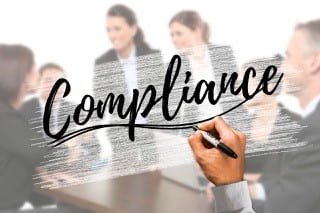By Lan Luh Luh
The first Code of Corporate Governance was adopted in Singapore 21 years ago in 2001. Since then, the Code has been re-issued three times, the last being in 2018. There has also been a shift in approach taken by the Singapore regulators with regards to how corporate governance should be enforced among companies, especially those listed on the Singapore Exchange. From a voluntary “comply-or-explain” approach to partially mandatory, instilling the right degree of corporate governance in Singapore companies has been a balancing act for the regulators throughout these years. On one hand, Singapore has inherited the common-law legal system, which traditionally has the “strongest legal rules covering protection of corporate shareholders and creditors”. Singapore’ success as a global commercial and financial hub can also be attributed to its willingness to embrace international standards, especially in corporate law and the laws relating to the regulations of capital markets. On the other hand, Singapore operates in an environment that is highly competitive and there is a fear that imposing unduly onerous corporate governance standards on listed companies may make Singapore less attractive as a place for business. Further, share ownership of companies in Singapore is highly concentrated with family firms and government-linked companies making up the bulk of listed companies. This means that modifications to the traditional corporate governance framework based on dispersed shareholdings are necessary. The key challenge to the Singapore regulators is therefore how its corporate governance regime can be moulded to meet international standards while tailoring it to the needs of local companies using a mixture of hard and soft laws.
As my paper published in 2023 in the Journal of Business Law (issue 8, page 661) explains, what Singapore has done over the years is a gradual tightening of the “comply-or-explain” corporate governance model as its listed companies internalize the fundamentals of corporate governance. To ensure that its corporate governance regime remains relevant to the stakeholders who are most affected by it, the regulator has adopted a “bottom-up” approach by playing second fiddle to the ad-hoc industry-led corporate governance committee formed at each review. The committee is responsible for re-drafting the Code, soliciting responses from the public and suggesting suitable implementation process and timetable. The regulators then give teeth to the recommendations by making the necessary changes to the Code, the relevant laws and listing rules. The long-term objective of the approach is to create and support a nation-wide eco-system advocating for good corporate governance amongst companies in Singapore.
Before 2018, the Code operated on a voluntary “comply-or-explain” basis. This means that a company which could not fuifill the requirement set out in the Code would just need to furnish a reason for non-compliance. In the latest re-issue of the Code in 2018, compliance with the key tenets of corporate governance is no longer voluntary as they are shifted from the Code to form part of the mandatory Singapore Exchange’s (SGX) Listing Rules (SGX LR) for listed companies. Compliance with the 13 broad-based principles laid out in the Code is also compulsory, while only adherence to the provisions continues to be on a “comply-or-explain” basis. There is, in addition, a set of accompanying Practice Guidance giving examples and suggestions on how the Code may be applied. Adoption of these suggestions by the companies is entirely voluntary.
The interplay between hard- and soft-law approaches in the regulation of corporate governance has provided the regulators the flexibility to fine-tune the regime with the changing needs of the capital market over time. A good example is the criteria for a director to be deemed “independent”. Beginning with independence from management only in 2001, the concept has evolved to include, in addition, independence from a 10 per cent shareholder in 2012. The threshold was eventually reduced to 5 per cent in 2018. The circumstances that render directors non-independent, which used to be on a “comply-or-explain” basis, have now moved from the Code to the mandatory SGX-LR. Tenure for independent director was also introduced in 2018, although the shareholders could approve to extend the tenure. On 11 January 2023, the relevant rules were refined further to limit tenure to nine years with no extension. This change came together with making disclosure of the exact details of the remuneration packages for the CEO and the directors mandatory by elevating the requirements from the Code to the SGX-LR for reporting beginning with the financial year ending on or after 31 December 2024.
Despite the progress made, there are areas which need improvement. For example, promoting board diversity amongst Singapore companies is still very much a work-in-progress, even though the concept of “diversity” was introduced 21 years ago. On the other hand, stakeholder (in contrast to shareholder) engagement is relatively new to the Singapore corporate governance framework, having entered the Code only in 2018. Interestingly, although the state-owned enterprises or the government-linked companies (GLCs), as they are known in Singapore, form a huge proportion of the market capitalization on the SGX, Singapore has never adopted a separate corporate governance code for such companies modelled after the OECD Guidelines on Corporate Governance State-Owned Enterprises. This may be due to the unique way that these GLCs are governed through Temasek, which is itself constitutionally safeguarded and its corporate governance regime reinforced by its Temasek Charter.
(Note: this blog post first appeared in the Oxford Business Law Blog on 23 February 2023)
Keywords: Corporate governance, Singapore, independence, diversity, remunerations
AUTHOR INFORMATION
Lan Luh Luh is an Associate Professor at the Faculty of Law at the National University of Singapore.
Email: lawlanll@nus.edu.sg
